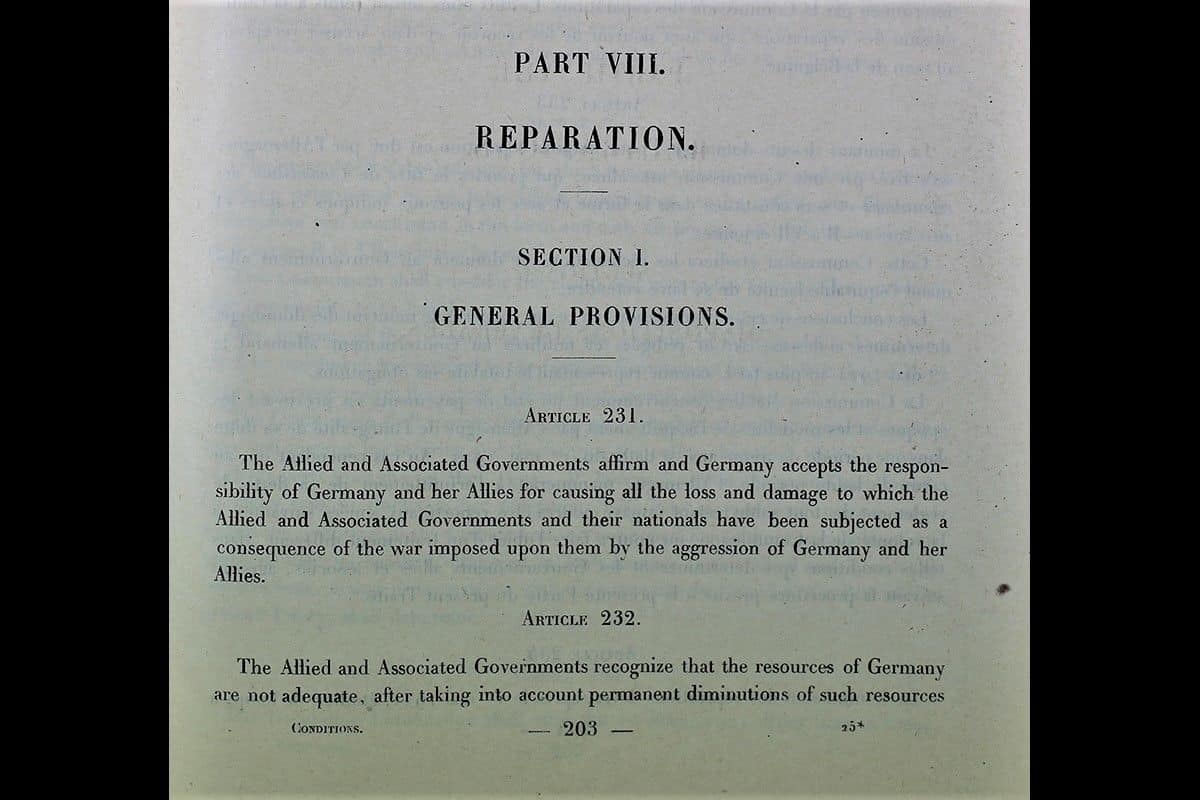The
armistice
was agreed on 11 November 1918, but the formal peace treaty was not agreed until the following year. This peace treaty became known as The Treaty of Versailles. It was signed on 28 June 1919.
The discussions about the treaty between Britain, France and the USA began in January 1919. Germany was not invited to contribute to these discussions.
Germany assumed that the
14-point plan
, set out by President Woodrow Wilson of the USA in January 1918, would form the basis of the peace treaty. However, France, who had suffered considerably in the war, was determined to make sure that Germany would not be able to challenge them again.
Under clause 231, the ‘War Guilt Clause’, Germany had to accept complete responsibility for the war. Germany lost 13% of its land and 12% of its population to the Allies. This land made up 48% of Germany’s iron production and a large proportion of its coal productions limiting its economic power.
The German Army was limited to 100,000 soldiers, and the navy was limited to 15,000 sailors. As financial compensation for the war, the Allies also demanded large amounts of money known as ‘reparations’.
The Treaty of Versailles was very unpopular in Germany and was viewed as extremely harsh. Faced with the revolutionary atmosphere at home, and shortages from the conditions of war, the German government reluctantly agreed to accept the terms with two exceptions. They did not accept admitting total responsibility for starting the war, and they did not accept that the former Kaiser should be put on trial.
The Allies rejected this proposal, and demanded that Germany accept all terms unconditionally or face returning to war.
The German government had no choice. Representatives of the new parties in power, the SPD and the Centre Party, Hermann Müller and Johannes Bell, signed the treaty on the 28 June 1919.
Many Germans were outraged by the Treaty of Versailles. They regarded it as a ‘diktat’ – dictated peace. Müller and Bell were branded the ‘November Criminals’ by the right-wing and nationalist parties that opposed treaty.














